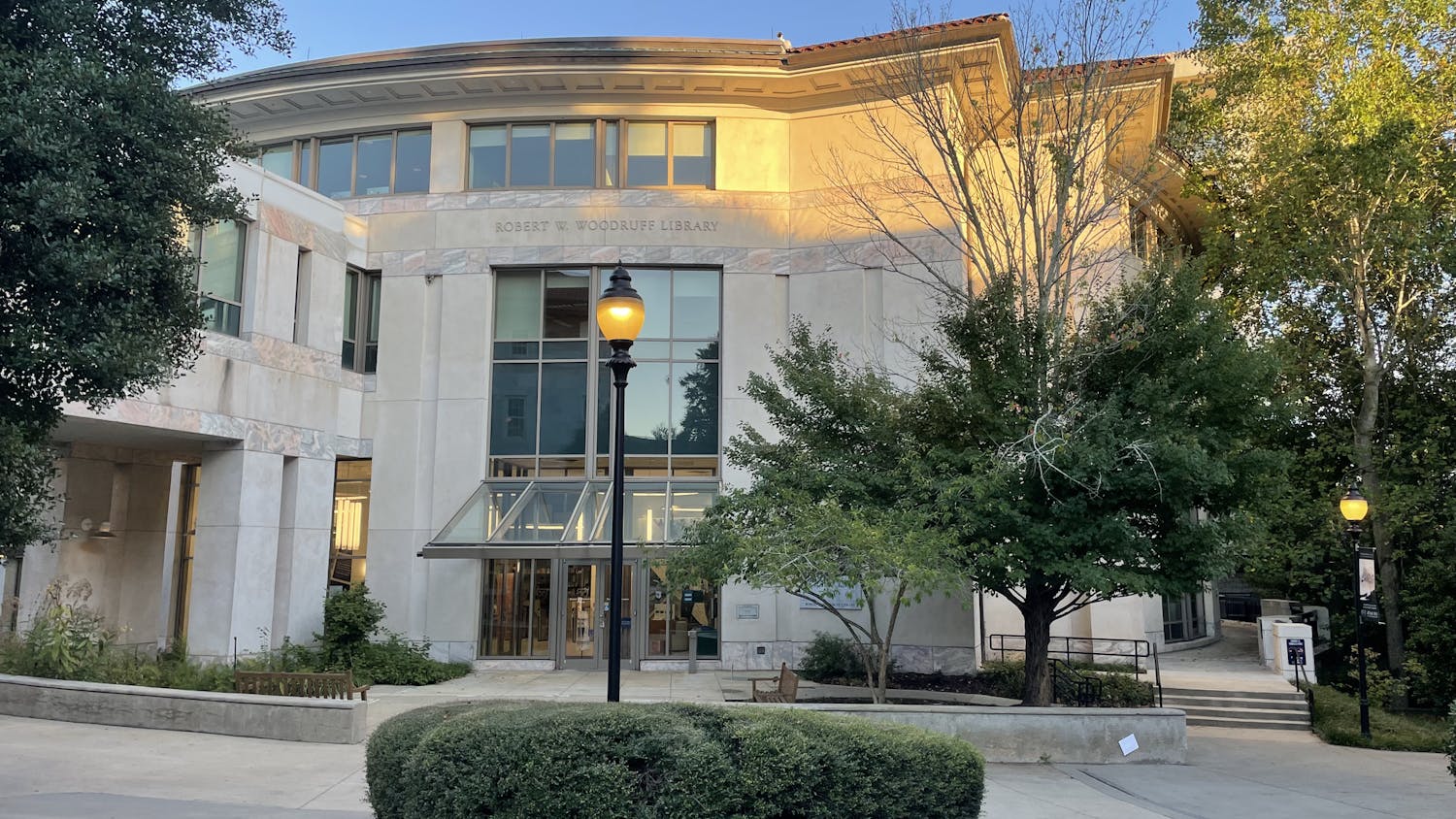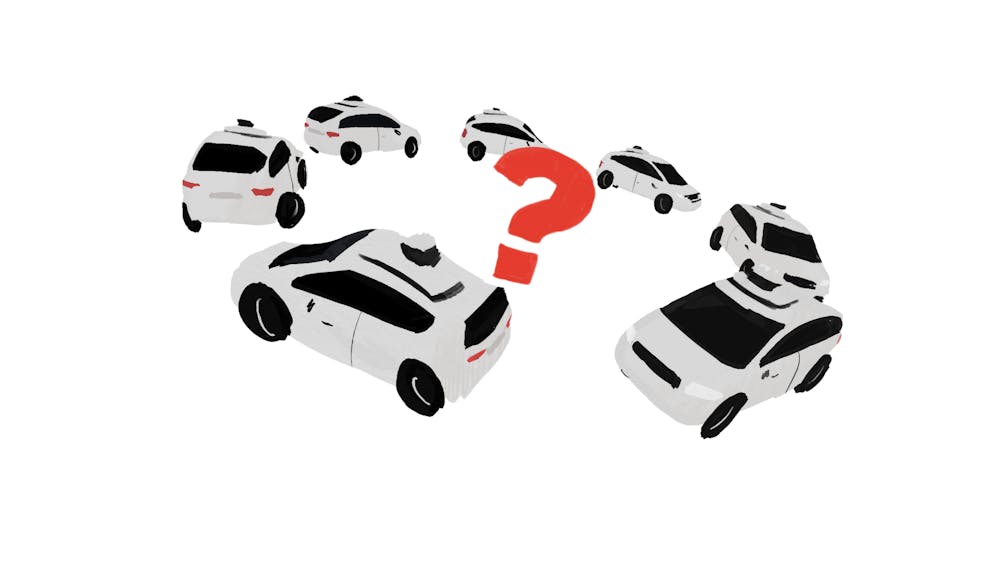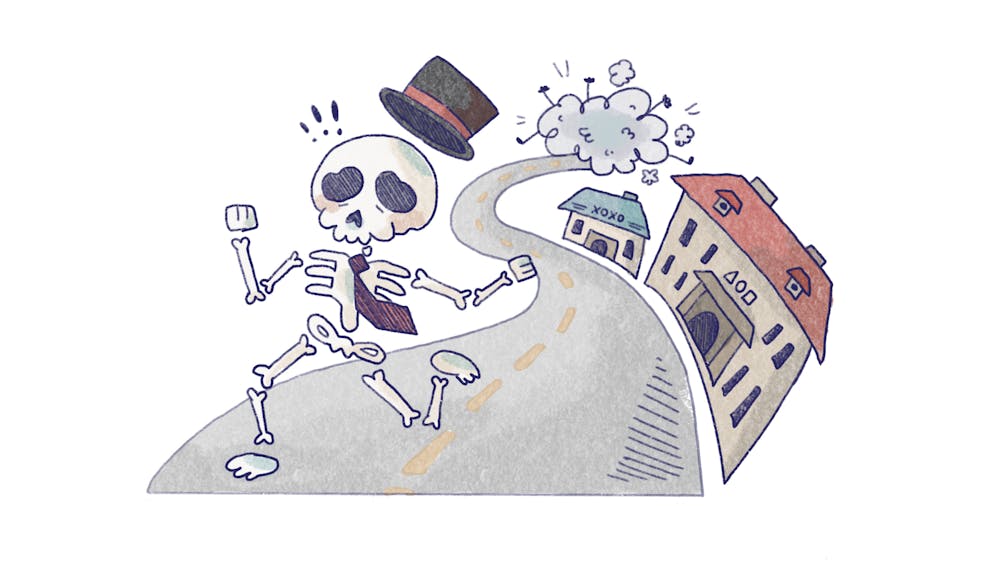
I chose opinion on a whim.
Split between news and opinion, struck by the power of perspective but unwilling to use my own words, my freshman self was torn, to say the least. I remember the opinion editors at the time telling me that opinion journalism could be used as a form of advocacy. A way to tell untold stories.
Opinion journalism is inherently different from news. As a member of Greek life, you should not report on accusations of racism within your own sorority. As a member of the Student Government Association, it would be unethical to write a news article about allegations of election fraud.
What you can do is pen an op-ed.
To me, opinion is boldness. It’s writing columns criticizing white supremacy even when it means your inbox will be flooded with hate messages the next day. It’s not just telling people the most intimate, raw details of your life, but putting it in a newspaper that’s on every nook of campus. That vulnerability doesn’t come easy.
My love for opinion journalism transcends most things. It gives power back to people who historically do not have access to news sources. It allows people to utilize reporting and interviews while advocating for change.
And above all, opinion is personal.
–
In my Asian American history class this week, my professor asked a simple question: do stories matter?
In the aftermath of Hiroshima, journalist and author John Hersey wrote a novel chronicling six accounts of individuals who survived the atomic bombing. His novel was an instant success, with all 300,000 copies being immediately sold out after publication.
But in the 70 years since Hersey’s reporting, public opinion on nuclear warfare has changed very little, if at all. In the context of warfare and protecting U.S. troops, studies show Americans are firm in their backing of nuclear weapons. Stories, it seems, may not have been enough to turn into actionable policy.
This last week, the week before the Wheel’s turnover occurs and I assume my role as editor-in-chief, I’ve again and again wondered about whether stories really can have an impact.
I’m used to friends and peers joking about how no one reads the Wheel. Even as I write this, a pessimistic note at the back of my mind wonders if this article will be memorialized on the website but never read.
I’m consumed by the fear that stories don’t matter. Because if stories don’t matter, maybe mine doesn’t either.
—
The idea that stories may not move people or shift lives is uncomfortable. It threatens my idealistic, moralistic worldview on the value of stories. Some days, I feel foolish having lived by the unrelenting thought that stories had the power to change the world, the very belief that drew me to opinion writing in the first place.
Perhaps the reason I have always been drawn to untold stories is that I feel like one. There’s not a lot of Tamil Sri Lankans on campus, and there’s not a lot of people who know about Sri Lanka’s turbulent history and the lasting effect of the Civil War. Academic lectures, discussions in the dining hall and conversations all work to center marginalized voices. But still, there are so many more left out.
So, I’ve tried to find stories that were forgotten or written out of existence. And if I couldn’t find them, I wrote them myself. I remember a fellow editor asking me once, how I was able to publish “The Myth Behind the Model Minority” and be so okay with the knowledge that peers, friends and even strangers could read it. To give strangers a purview into the most intimate thoughts in your head is terrifying, to say the least.
I still get an uncomfortable stirring in my stomach when I read my own words, at the thought of how exposed I feel. I still second-guess articles I published years ago, wondering if pouring such intimacy into articles was worth it. I’m not sure if that feeling ever really goes away.
Opinion is often diminished, relegated as the inferior, less difficult version of news. The easy way out for people who couldn’t hack real journalism. Throughout my time as an editor, I watched again and again as the notion of objectivity was weaponized against people with perspectives. I heard stories of reporters at the Wheel who were told they couldn’t report on politics because, as a person of color, they weren’t objective enough. It influenced me to start a whole project to investigate how white supremacy infiltrates campus newspapers, and creeps into the historical records of universities.
But what is it that requires true objectivity? Does it mean not taking a side in the face of white supremacy? What about police brutality? Or asylum for refugees? Does objectivity mean morals and values have to fall to the wayside in the supposed pursuit of a universal truth?
The premise of objectivity is rooted in white supremacy. To not take a stand on human rights means to choose the side of the oppressor. To denounce people the right to use their own voices is a blatant disregard for the necessity of humanity.
And in the past three years, I have again and again grappled with the question of where the line stands between hate speech and free speech yet I still don’t have an answer.
—
So when I reflect on why I chose opinion, why I stuck with opinion and why I love it, I still wonder every day how to put it into words.
I grew up in an Asian household. My parents always warned me not to put anything too controversial out there, lest I risk my future job opportunities. But for people of color, we’re already instantly scrutinized for every step we take. We’re already a liability enough as it is.
For me, opinion journalism is freeing. It’s doing the hard thing and taking a risk, even if I might regret it later. I don’t know how to take all the clichés in the world and make it something real. But here goes something.
As I learned to speak up through opinion journalism, I learned to hold institutions around me accountable. It was the Wheel that taught me this. I’m sure my editors from freshman year remember me as the quiet girl who struggled to hammer out a sentence during my first Editorial Board meeting. As one of the very few women and people of color in the room, and one of the two freshmen, I don’t hold that against myself. But I still wonder how things would have been different had diversity, equity and inclusion had always been the founding principles of journalism, the values that we modeled everything after.
My sophomore year, I started to notice the inequities within the Wheel itself. The way its structures excluded low-income students, the coverage that excluded Black, Indigenous and people of color. So, I became the annoying person that had something to say about everything, and advocated for change at every turn. I may not have always been the most liked person, but I hope the Wheel was made better as a result.
Now, as I embark upon my final year at Emory and transition into the role of editor-in-chief, it’s time for me to take a break from opinion writing, at least for a while.
I wholeheartedly believe in the value of opinion journalism, and I am so, so grateful for the past three years. I’ve done everything I set out to do. I helped launch an opinion podcast that centers marginalized perspectives on inequalities on campus. I wrote an award-winning column about the intersection of politics and race. I’ve written op-eds, music reviews, editorials and everything in between.
And now it’s time for something new.
To anyone who happens to stumble upon my good-bye, I know it’s likely that these words will just become construction paper at the back of the Wheel’s offices. But I still believe, even now, that telling stories can change the world. As cheesy as it is, I hope I always maintain my youthful exuberance and I hope I never stop telling stories.
No matter who you are, I encourage everyone at Emory to try to pen an op-ed during their time here. To advocate for something more even when it’s difficult, even when you’re worried about how others will perceive you. When you leave this campus, what do you want your mark to be?
Brammhi Balarajan is from Las Vegas.








